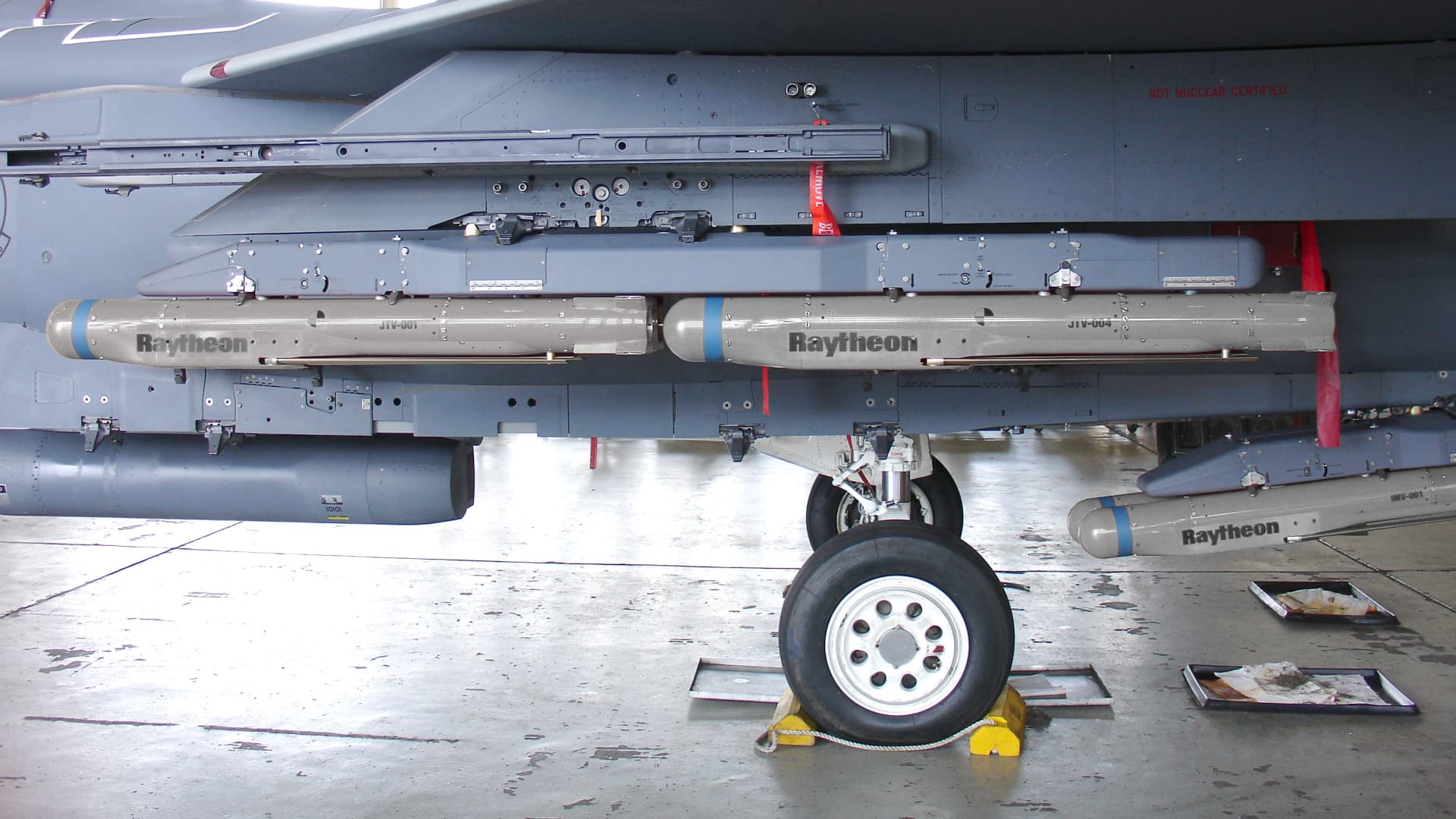As the war between Israel and the Hamas militant group ramped up last month, Kenneth Suna took to his investing-focused TikTok account.
Suna began a video asking his more than 200,000 followers “if you’re cool with profiting off war,” before adding “I am not.” He went on to list the names and performances of defense-focused funds including the iShares U.S. Aerospace & Defense ETF (ITA) and the SPDR S&P Aerospace & Defense ETF (XAR).
“You have a choice where your money goes,” the 38-year-old Washington, D.C., resident told CNBC. “I would feel guilty.”
Suna is part of a group of everyday investors skirting the “returns at any costs” mentality on moral grounds. As the latest geopolitical conflict escalates, these investors are ignoring defense stocks despite the market axiom that those holdings tend to perform better in times of war.
Indeed, the iShares U.S. Aerospace & Defense ETF popped more than 4% in the week following Hamas’ Oct. 7 attack and went on to finish October up about 3.7%. Meanwhile, the benchmark S&P 500 index added just 0.5% that week and ended the month 2.2% lower.
Ignoring market wisdom
Retail traders poured into defense stocks and funds in the aftermath of the invasion, but inflows have since cooled, according to Vanda Research. Defense giant RTX, which Vanda found was a top sector pick among individual investors, has climbed 14% since the start of October.
But not everyone sees the intensifying conflict as a moment to invest in defense stocks. Weapon Free Funds, a screening tool gauging defense exposure in portfolios, including the funds in your 401(k), recorded a five-fold increase in visits between the attack and early November from the 30 days prior.
Weapon Free Funds is part of a family of tools from shareholder advocacy nonprofit As You Sow aimed at helping people check if their fund dollars are invested in companies tied to themes such as guns or deforestation. Andrew Behar, As You Sow’s CEO, said it can be particularly challenging for those with money in large funds to decipher which companies they are investing in.
“The person who earns the money should have the right to decide how it’s invested and should be able to invest in alignment with their values,” Behar said. “We find there’s a really strong correlation of people who want that, but they don’t know how to do it.”
The screening platform gives funds a letter grade. An “A” means no holdings were flagged in a military weapons screen, while an “F” indicates more than 4% were. (For reference, the SPDR S&P 500 ETF Trust (SPY), which tracks the broad S&P 500 index, earned a “D'” grade.)
Critics of defense companies have pointed to the fact that the need for their products can increase during periods of heightened geopolitical strife. The latest war’s impact on these businesses has already started becoming apparent: General Dynamics CFO Jason Aiken told analysts last month that artillery demand would likely see “upward pressure” as the Israel-Hamas conflict broke out alongside the ongoing war between Russia and Ukraine.
Those with moral qualms have also historically highlighted the death toll of war as a reason for their uneasiness.
Weapon Free Funds’ recent surge in interest surpassed what was seen in February and March of 2022 following Russia’s invasion of Ukraine, As You Sow said.
That can be tied to differences in public consensus of how these conflicts should play out. While there was overwhelming international support for Ukraine to fight back with weapons, opinion appears to be more mixed on the Israel-Hamas war as calls for a ceasefire grow.
Drawing the line
These moral calculations are the latest example of a growing trend of some investors wanting their holdings to reflect personal values. In one of the newest data points on the relationship, U.S. Bank found more than four-fifths of Gen Z and millennials would underperform the S&P 500′s 10-year return to ensure the companies they invested in had aligned with their beliefs.
“A common decision making process is that if I hold a value that I’m anti-war, then I don’t want to be holding stocks that enable war,” said Brad Barber, a finance professor focused on investor psychology at the University of California, Davis. “That is a fairly simple way of trying to invest in a way that’s consistent with one’s values.”
Meanwhile, Suna said he can feel caught between two schools of thought. There are those who tell him that war is going to happen anyway, so he might as well see the return on defense stocks. On the other side of the spectrum, he’s heard younger people say that they don’t invest because no corporation is perfect or because they see the stock market as an unequitable system for building wealth.
Suna is left walking a fine line: He views investing as creating a chance at retirement one day, but simultaneously needs to feel morally sound about where his money goes. Still, while he said choices about where to invest can sometimes be tricky or complex, deciding to avoid defense stocks wasn’t a particularly difficult call.
“More and more young people are saying, ‘You know what? You can invest how you want, but I’m not OK with that,'” Suna said. “Everyone draws the line somewhere.”
